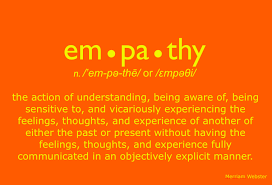


Posted November 8, 2014
One of the biggest mistakes I see with media spokespeople is their failure to show enough empathy for victims. If a spokesperson is responding to a crisis or negative event that hurts people, the first message must always be empathy for the victims.
 It doesn’t matter whether you are at fault. You can show empathy without taking responsibility. For example, if there was an explosion at your work and someone was killed, you wouldn’t want to take the blame for it until you knew the cause.
It doesn’t matter whether you are at fault. You can show empathy without taking responsibility. For example, if there was an explosion at your work and someone was killed, you wouldn’t want to take the blame for it until you knew the cause.
But you could still say something like: “Our hearts go out to the families of the victims.” That way you are showing empathy, without admitting guilt.
We always emphasise this with our media training clients. If you don’t do this, you can appear cold and heartless. That does nothing for your reputation.
But it’s common for people to avoid this, whether it’s an emergency, job losses or even concerned parents at a school.
If you ever find yourself in this position, I recommend that the first thing you say in a media interview is your concern for victims. Even if the interviewer asks you a question totally unrelated, you are quite entitled to say something like: “Before I answer your question, I would just like to say that our hearts go out to the victims.”
Also, often when people do empathise, they talk about their own feelings. School leaders are classic examples. When responding to a death of a student or a bullying incident, they commonly talk about themselves. They often say things like “We are very disappointed.” Instead the focus must be on the victim’s feelings, not their own. Something like “Our thoughts and prayers are with the victims.”
A good way to sum this all up is to use an interesting saying. “People need to know that you care before they care what you know.
For more information on my media training or crisis communication planning workshops, contact [email protected] or 029 200 8555